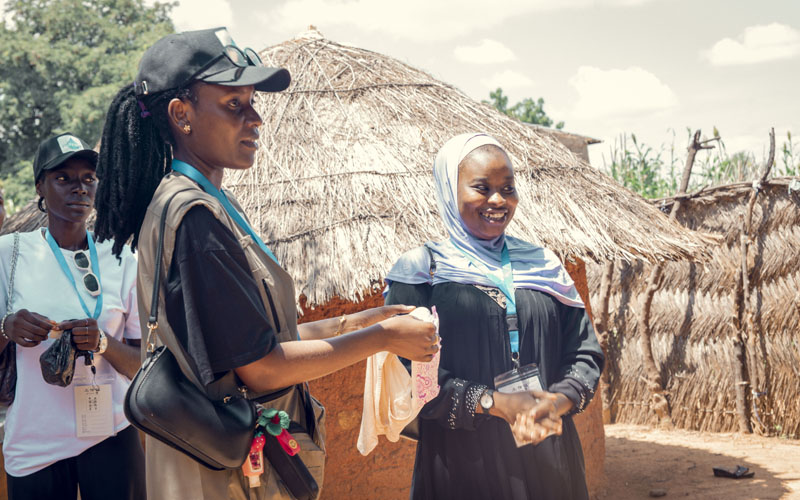+234 912 443 7374

At Rural Water Access Foundation (RUWAF), we recognize that poor menstrual hygiene management (MHM) remains a significant barrier to girls’ education, health, and dignity—especially in underserved rural communities. Our Menstrual Hygiene Programs in Public Schools aim to break taboos, provide practical support, and promote safe, healthy menstrual practices among schoolgirls.
We begin by conducting a situational analysis to identify schools with high absenteeism rates among girls, limited menstrual hygiene support, and poor WASH facilities. We consult with school authorities, local education departments, Parent-Teacher Associations (PTAs), and community leaders to ensure transparency and cooperation.
Our trained facilitators conduct interactive sessions with students, teachers, and community members to provide accurate information about menstruation. Topics include:
- Understanding the menstrual cycle
- Dispelling myths and stigma
- Proper use and disposal of sanitary products
- Emotional and physical self-care during menstruation
We create a safe, non-judgmental space for girls to ask questions and share experiences. Boys are also included in select sessions to promote empathy and break the culture of silence.
RUWAF distributes reusable and disposable sanitary pads, underwear, and soaps as part of menstrual hygiene kits to schoolgirls. Where feasible, we introduce locally produced reusable pads as a sustainable option and train girls on how to maintain them hygienically.
In partnership with school management, we assess and improve WASH infrastructure to support menstrual hygiene. This includes:
- Constructing or upgrading girl-friendly toilets with doors and locks
- Providing access to water within school premises
- Installing handwashing stations and waste disposal bins for used sanitary materials
These efforts ensure that girls can manage their periods in privacy and dignity during school hours.
We build the capacity of female teachers and health staff to become menstrual hygiene champions. They receive training on how to support menstruating students, maintain sanitary facilities, and facilitate peer support clubs within schools.
RUWAF helps establish MHM clubs led by students with support from teachers. These clubs foster peer-to-peer education, distribute supplies when needed, and organize awareness events such as Menstrual Hygiene Day campaigns.
To sustain impact beyond the school environment, we engage parents and caregivers through community dialogues and sensitization meetings. This helps to shift harmful norms, encourage support for girls at home, and ensure affordability and accessibility of sanitary materials.
We monitor program outcomes by tracking school attendance rates, hygiene practices, and feedback from students and teachers. Regular evaluations guide future interventions and help us adapt to the specific needs of each community.